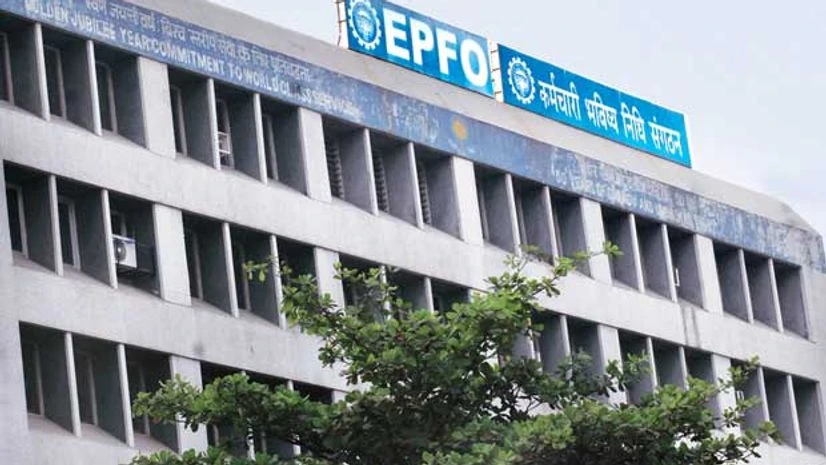It now transpires that trade unions (TUs), up in arms last week against the government’s earlier proposal of restricting withdrawal from an employee’s provident fund (PF) account, did a volte face.
In earlier consultations, the records show, they went along with the proposal. The labour ministry had conducted multiple stakeholder meetings to discuss the issues concerned before proceeding.
Contrary to their present versions, all the four major TUs – BMS, INTUC, AITUC and CITU – participated and the decision was taken after their consent. Business Standard has reviewed a copy of the minutes in this regard.
“All the members are in favour of the proposal for restricting withdrawal from the Provident Fund by the members,” the document shows. All top union leaders across the political spectrum were present.
Raman Pandey, president of INTUC, is recorded as having welcomed the move and stated that PF is meant for future contingencies. “If premature withdrawals are allowed, the very purpose of PF will be defeated,” he said at the meeting.
A K Padmanabhan, president of CITU, expresses his agreement and suggested awareness camps be organised by the Employees PF Organisation for enlightening the members on the benefits of such a restriction.
When asked to explain, D L Sachdeva, national secretary, AITUC, now accuses the government of spreading misinformation and said the curb on withdrawal was taken unilaterally. “You are forcing someone to keep his money with you. Then, why not give some extra benefit for retaining this amount?” he said.
The government now says it sees vested political interests behind the protests that erupted among garment workers in Bengaluru, which led to the decision being rolled back. On April 19, the government rolled back the notification of February 10, after these and other violent protests across the country.
The notification had restricted withdrawal of the employer’s contribution, 3.7 per cent of basic wages, to a PF account till the age of 58 years.
According to a ministry official, they’d decided to put certain curbs because a study by the retirement fund body found eight per cent of claims were for premature withdrawal. “So many accounts were turning non-operative. Hence, we decided to provide interest on non-operative accounts,” said the official. By an estimate, about Rs 30,000 crore was stuck in such accounts.
The ministry accepts that there was a communication gap with workers and steps will be taken by the government in future to explain any decision.
Central provident fund commissioner V P Joy, in an internal meeting after the decision to roll back the proposal, makes the same point, that communication need to be more effective.
THE STORY SO FAR
In earlier consultations, the records show, they went along with the proposal. The labour ministry had conducted multiple stakeholder meetings to discuss the issues concerned before proceeding.
Contrary to their present versions, all the four major TUs – BMS, INTUC, AITUC and CITU – participated and the decision was taken after their consent. Business Standard has reviewed a copy of the minutes in this regard.
“All the members are in favour of the proposal for restricting withdrawal from the Provident Fund by the members,” the document shows. All top union leaders across the political spectrum were present.
Raman Pandey, president of INTUC, is recorded as having welcomed the move and stated that PF is meant for future contingencies. “If premature withdrawals are allowed, the very purpose of PF will be defeated,” he said at the meeting.
A K Padmanabhan, president of CITU, expresses his agreement and suggested awareness camps be organised by the Employees PF Organisation for enlightening the members on the benefits of such a restriction.
When asked to explain, D L Sachdeva, national secretary, AITUC, now accuses the government of spreading misinformation and said the curb on withdrawal was taken unilaterally. “You are forcing someone to keep his money with you. Then, why not give some extra benefit for retaining this amount?” he said.
The government now says it sees vested political interests behind the protests that erupted among garment workers in Bengaluru, which led to the decision being rolled back. On April 19, the government rolled back the notification of February 10, after these and other violent protests across the country.
The notification had restricted withdrawal of the employer’s contribution, 3.7 per cent of basic wages, to a PF account till the age of 58 years.
According to a ministry official, they’d decided to put certain curbs because a study by the retirement fund body found eight per cent of claims were for premature withdrawal. “So many accounts were turning non-operative. Hence, we decided to provide interest on non-operative accounts,” said the official. By an estimate, about Rs 30,000 crore was stuck in such accounts.
The ministry accepts that there was a communication gap with workers and steps will be taken by the government in future to explain any decision.
Central provident fund commissioner V P Joy, in an internal meeting after the decision to roll back the proposal, makes the same point, that communication need to be more effective.
THE STORY SO FAR
-
Feb 10: Government announces stricter guidelines on EPFO withdrawal norms
-
April 18: Under fire from trade unions, government relaxes and gives exemption to certain criteria in withdrawal norms
-
April 19: Government does a volte face again, says new withdrawal norms will come in effect from August.
- April 19: Under pressure, in the same evening government announces complete roll back of new guidelines

)
